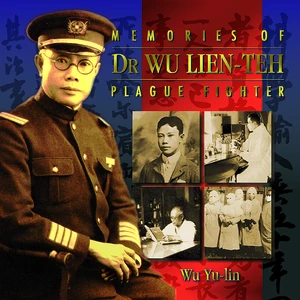Dr Wu Lien-teh (1879 - 1960) was a distinguished scientist and Cambridge-trained Chinese physician who, at the age of 31, was sent to Manchuria in the severe winter of 1910 to fight the terrifying pneumonia plague which then threatened the world and claimed a deathtoll of 60,000 victims. The successful ending of this major plague epidemic, covering a distance of 2,000 miles from the north-western border of Siberia to Peking, within a short period of four months, brought him international fame and marked the beginning of almost thirty years of devoted humanitarian service to China.In 1912, Dr Wu established the Manchurian Plague Prevention Service, and it was on this foundation that he, despite immense difficulties, began to modernise China's medical services and medical education. Some twenty modern hospitals, laboratories and research institutions, including the Peking Central Hospital, built by Dr Wu in different parts of China are memorials to his work. He founded the Chinese Medical Association and established the first national quarantine service in China. He embarked on arduous work for the League of Nations and became a world authority on plague.This volume contains more than 200 historically important photographs vividly depicting the medical scenes and anti-plague work in China during the years 1908 - 37 that came from Dr Wu's private collection â an extraordinary collection filled with unforgettable images. This book, written with sensitivity and tenderness, is a worthy companion to Dr Wu Lien-teh's autobiography entitled Plague Fighter: The Autobiography of a Modern Chinese Physician, published by Heffer, Cambridge, in 1959.
Price history
Oct 25, 2021
€21.35

